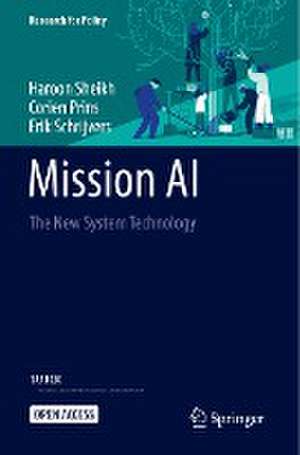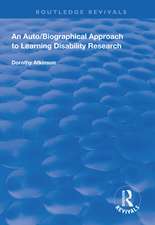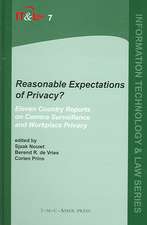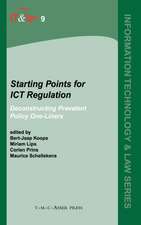Mission AI: The New System Technology: Research for Policy
Autor Haroon Sheikh, Corien Prins, Erik Schrijversen Limba Engleză Paperback – 31 ian 2023
| Toate formatele și edițiile | Preț | Express |
|---|---|---|
| Paperback (1) | 362.81 lei 6-8 săpt. | |
| Springer International Publishing – 31 ian 2023 | 362.81 lei 6-8 săpt. | |
| Hardback (1) | 436.57 lei 6-8 săpt. | |
| Springer International Publishing – 31 ian 2023 | 436.57 lei 6-8 săpt. |
Preț: 362.81 lei
Nou
Puncte Express: 544
Preț estimativ în valută:
69.43€ • 71.73$ • 57.79£
69.43€ • 71.73$ • 57.79£
Carte tipărită la comandă
Livrare economică 25 martie-08 aprilie
Preluare comenzi: 021 569.72.76
Specificații
ISBN-13: 9783031214509
ISBN-10: 3031214501
Pagini: 410
Ilustrații: XX, 410 p. 1 illus.
Dimensiuni: 155 x 235 mm
Greutate: 0.6 kg
Ediția:1st ed. 2023
Editura: Springer International Publishing
Colecția Springer
Seria Research for Policy
Locul publicării:Cham, Switzerland
ISBN-10: 3031214501
Pagini: 410
Ilustrații: XX, 410 p. 1 illus.
Dimensiuni: 155 x 235 mm
Greutate: 0.6 kg
Ediția:1st ed. 2023
Editura: Springer International Publishing
Colecția Springer
Seria Research for Policy
Locul publicării:Cham, Switzerland
Cuprins
Part I Building blocks: introducing and interpreting AI as a new system technology, similar to electricity and the internal combustion engine.- Introduction.- Chapter 1 Artificial Intelligence: definition and background.- Chapter 2 AI is leaving the lab and entering society.- Chapter 3 AI as a system technology.- Part II Five tasks: discussion of the tasks for embedding AI into society.- Chapter 4 Demystification.- Chapter 5 Contextualization.- Chapter 6 Engagement.- Chapter 7 Regulation.- Chapter 8 Consider AI as a system technology.- Part III Agenda: conclusions and recommendations for AI policy in the Netherlands.- Chapter 9 Policy for AI as a system technology.- Appendix: Examples of AI applications in the Netherlands.- Terms and definitions.- Keywords.- Bibliography.
Notă biografică
Corien Prins. Regulatory challenges and questions around the introduction of digital technologies have been on Corien Prins’ agenda for three decades. In 1995, she founded what is now the Tilburg Institute for Law, Technology, and Society—a world-renowned research center on law, society, and technology. In her research on the impact of emerging technologies on individuals and society, she has focused on the role of regulation, law, fundamental values, and human rights. In 2017, Prins was appointed chair of the Netherlands Scientific Council for Government Policy (WRR), which advises the Dutch government and parliament on strategic issues likely to have significant political and societal consequences. Prins has an abiding interest in the interdependency of the digital and physical worlds. One of her current research foci within the broader theme of artificial intelligence is its use by the judiciary. Here she seeks to understand the implications of using AI for the core values of thejudiciary—impartiality, independence, and due process. Other research topics of Prins relate to the development of legal measures to gain a clearer picture of which parties, digital processes and services are key to the functioning of critical (vital) processes in society. She thereby looks at the chains and networks that support key processes and investigates whether digitalization necessitates changes to the prioritization of assets that are essential for the functioning of a society and economy. Her other research interests include the implications of digital technologies for democracy in a globalized world; the use of digital technologies and personal autonomy; and privacy and personal data protection.
Haroon Sheikh is a senior scientist and project coordinator at the Dutch Scientific Council for Government Policy, and a Professor in The Strategic Governance of Global Technologies at VU University. His research focuses on the intersection of new technology and internationalrelations. Haroon studied philosophy, political science and public administration at Leiden and Oxford University and did his PhD in philosophy on the relationship between tradition and modernity at VU University. He worked over a decade in the financial sector and headed Freedomlab Thinktank in Amsterdam. Haroon has written several books in the field of geopolitics.
Erik Schrijvers is senior scientist and project coordinator at the Dutch Scientific Council for Government Policy. He is also a member of the Supervisory Board of DEN, knowledge institute for culture and digital transformation. His research focuses on the intersection of digital technology, culture and policy. He studied history of international relations and philosophy at Utrecht University. He obtained his PhD with a thesis on the history of forms of extra-parliamentary representation in the Netherlands. In 2016 and 2017 he worked for the Ministry of the Interior and Kingdom Relations, where he was responsible forthe research and reporting of the study group Information Society and Government.
Haroon Sheikh is a senior scientist and project coordinator at the Dutch Scientific Council for Government Policy, and a Professor in The Strategic Governance of Global Technologies at VU University. His research focuses on the intersection of new technology and internationalrelations. Haroon studied philosophy, political science and public administration at Leiden and Oxford University and did his PhD in philosophy on the relationship between tradition and modernity at VU University. He worked over a decade in the financial sector and headed Freedomlab Thinktank in Amsterdam. Haroon has written several books in the field of geopolitics.
Erik Schrijvers is senior scientist and project coordinator at the Dutch Scientific Council for Government Policy. He is also a member of the Supervisory Board of DEN, knowledge institute for culture and digital transformation. His research focuses on the intersection of digital technology, culture and policy. He studied history of international relations and philosophy at Utrecht University. He obtained his PhD with a thesis on the history of forms of extra-parliamentary representation in the Netherlands. In 2016 and 2017 he worked for the Ministry of the Interior and Kingdom Relations, where he was responsible forthe research and reporting of the study group Information Society and Government.
Textul de pe ultima copertă
This open access book offers a strategic perspective on AI and the process of embedding it in society. After decades of research, Artificial Intelligence (AI) is now entering society at large. Due to its general purpose character, AI will change society in multiple, fundamental and unpredictable ways. Therefore, the Netherlands Scientific Council for Government Policy (WRR) characterizes AI as a system technology: a rare type of technologies that have a systemic impact on society. Earlier system technologies include electricity, the combustion engine and the computer. The history of these technologies provides us with useful insights about what it takes to direct the introduction of AI in society. The WRR identifies five key tasks to structurally work on this process: demystification, contextualisation, engagement, regulation and positioning. By clarifying what AI is (demystification), creating a functional ecosystem (contextualisation), involving diverse stakeholders (engagement), developing directive frameworks (regulation) and engaging internationally (positioning), societies can meaningfully influence how AI settles. Collectively, these activities steer the process of co-development between technology and society, and each representing a different path to safeguard public values. Mission AI - The New System Technology was originally published as an advisory report for the government of the Netherlands. The strategic analysis and the outlined recommendations are, however, relevant to every government and organization that aims to take up 'misson AI' and embed this newest system technology in our world.
Caracteristici
Introduces the term 'system technology' to characterize AI and its impact on society Offers an useful framework to direct the process of embedding AI in society Provides a comprehensive overview of the history and field of AI


























